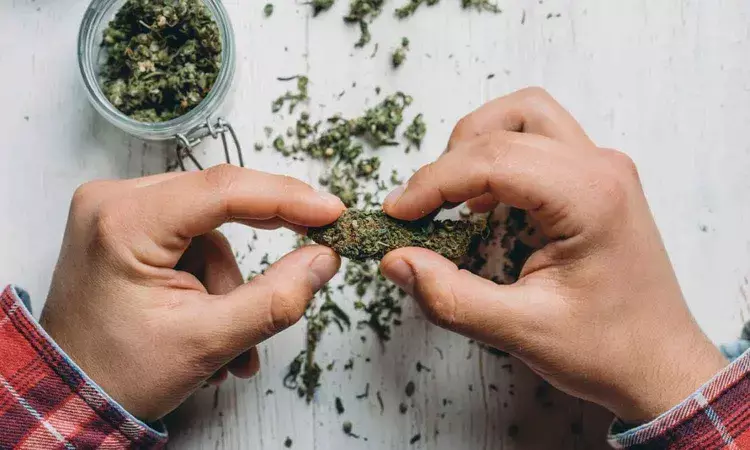- Home
- Medical news & Guidelines
- Anesthesiology
- Cardiology and CTVS
- Critical Care
- Dentistry
- Dermatology
- Diabetes and Endocrinology
- ENT
- Gastroenterology
- Medicine
- Nephrology
- Neurology
- Obstretics-Gynaecology
- Oncology
- Ophthalmology
- Orthopaedics
- Pediatrics-Neonatology
- Psychiatry
- Pulmonology
- Radiology
- Surgery
- Urology
- Laboratory Medicine
- Diet
- Nursing
- Paramedical
- Physiotherapy
- Health news
- Fact Check
- Bone Health Fact Check
- Brain Health Fact Check
- Cancer Related Fact Check
- Child Care Fact Check
- Dental and oral health fact check
- Diabetes and metabolic health fact check
- Diet and Nutrition Fact Check
- Eye and ENT Care Fact Check
- Fitness fact check
- Gut health fact check
- Heart health fact check
- Kidney health fact check
- Medical education fact check
- Men's health fact check
- Respiratory fact check
- Skin and hair care fact check
- Vaccine and Immunization fact check
- Women's health fact check
- AYUSH
- State News
- Andaman and Nicobar Islands
- Andhra Pradesh
- Arunachal Pradesh
- Assam
- Bihar
- Chandigarh
- Chattisgarh
- Dadra and Nagar Haveli
- Daman and Diu
- Delhi
- Goa
- Gujarat
- Haryana
- Himachal Pradesh
- Jammu & Kashmir
- Jharkhand
- Karnataka
- Kerala
- Ladakh
- Lakshadweep
- Madhya Pradesh
- Maharashtra
- Manipur
- Meghalaya
- Mizoram
- Nagaland
- Odisha
- Puducherry
- Punjab
- Rajasthan
- Sikkim
- Tamil Nadu
- Telangana
- Tripura
- Uttar Pradesh
- Uttrakhand
- West Bengal
- Medical Education
- Industry
Majority of legal marijuana products too strong for pain relief

A new analysis suggests that some forms of medical marijuana may be stronger than necessary for pain management.
WINSTON- Researchers have found that more than 90% of the legal marijuana products offered in medical dispensaries are much stronger than what doctors recommend for chronic pain relief. The study has been published in the journal PLOS ONE.
"We know that high-potency products should not have a place in the medical realm because of the high risk of developing cannabis-use disorders, pwhich are related to exposure to high THC-content products," said the study's lead author, Alfonso Edgar Romero-Sandoval, M.D., Ph.D., associate professor of anesthesiology at Wake Forest School of Medicine, part of Wake Forest Baptist Health.
"Several earlier studies showed that levels pof up to 5% tetrahydrocannabinol (THC) - the main psychoactive compound in marijuana that provides pain relief as well as intoxication - were sufficient to reduce chronic pain with minimal side effects."
The goal of this study was to evaluate the advertised THC and CBD content of legal cannabis products to determine their suitability for medicinal use, and to compare the potency of the products offered in medical and recreational programs.
The researchers recorded the concentrations of THC and cannabidiol (CBD) - the non-euphoric compound in marijuana - in all plant cannabis products provided by legal dispensary websites and compared them between or within the states in the study: California, Colorado, Maine, Massachusetts, New Hampshire, New Mexico, Rhode Island, Vermont and Washington. A total of 8,505 cannabis products across 653 dispensaries were sampled.
Romero-Sandoval's team found that most of the products offered in the medical dispensaries in the study had more than 10% THC and that many had 15% or more, the same as what is available in products at recreational dispensaries.
This is problematic because between 60% and 80% of people who use medical marijuana use it for pain relief, Romero-Sandoval said. The higher the concentration of THC the greater risk, not only for developing dependency, but also for developing tolerance more quickly, which means higher and higher concentrations might be needed to get the same level of pain relief.
"It can become a vicious cycle," Romero-Sandoval said.
"Better regulation of the potency of medical marijuana products is critical. The FDA regulates the level of over-the-counter pain medications such as ibuprofen that have dose-specific side effects, so why don't we have policies and regulations for cannabis, something that is far more dangerous?"
This study provides the scientific evidence to help policy makers correct mistakes and to create a better framework to protect patients, he said.
Dr Kamal Kant Kohli-MBBS, DTCD- a chest specialist with more than 30 years of practice and a flair for writing clinical articles, Dr Kamal Kant Kohli joined Medical Dialogues as a Chief Editor of Medical News. Besides writing articles, as an editor, he proofreads and verifies all the medical content published on Medical Dialogues including those coming from journals, studies,medical conferences,guidelines etc. Email: drkohli@medicaldialogues.in. Contact no. 011-43720751


